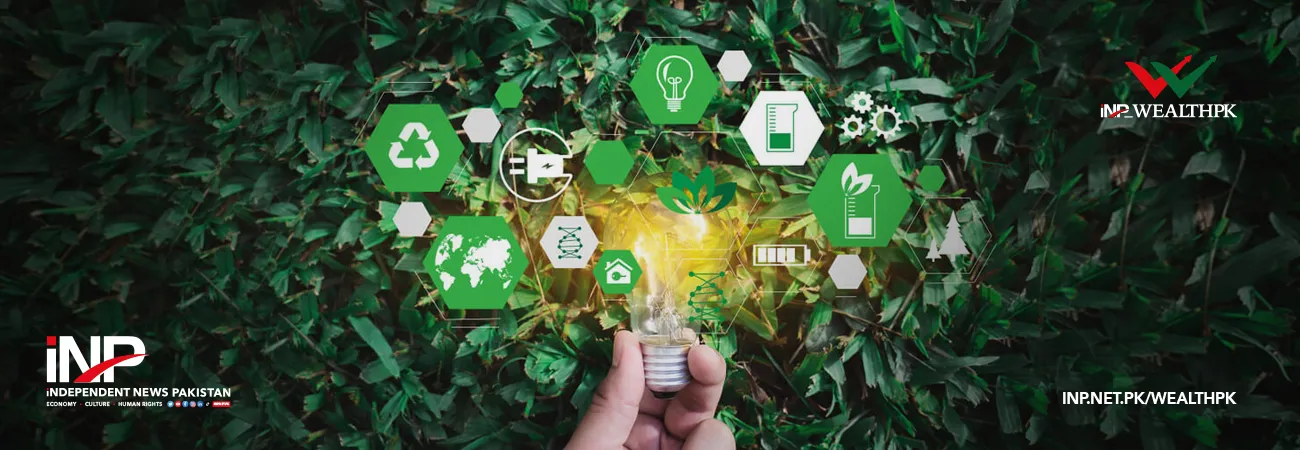INP-WealthPk
Ayesha Saba
Pakistan, like many developing nations, faces the dual challenge of achieving a robust economic growth while minimizing its carbon footprint. As the country grapples with rapid population growth and increasing energy demands, finding a harmonious equilibrium between progress and environmental stewardship becomes paramount. Talking to WealthPK, Waseem Ahmed, CEO of Islamic Relief Worldwide, emphasizes the significant role of the industrial sector in modern economies, acknowledging its importance while drawing attention to its substantial contribution to global emissions. Pakistan’s economy has witnessed a significant growth over the years, fuelled by sectors such as agriculture, manufacturing, and services. However, this growth has come at the cost of rising greenhouse gas emissions, deforestation, and pollution. “Balancing economic expansion with environmental preservation is no longer a choice, it’s an urgent necessity,” he says. Ahmed highlights that major industries such as cement, concrete, iron and steel, oil and gas, chemicals, and mining collectively account for over 80% of all industrial emissions. Specifically, 6.5% of Pakistan's total CO2 emissions are attributed to these industries.
Ahmed emphasizes that decarbonising the industrial sector requires a comprehensive approach. Effective policies are the linchpin of sustainable development. Pakistan needs comprehensive strategies that align economic goals with environmental targets. Regulatory frameworks, incentives, and penalties should encourage responsible behaviour. Talking to WealthPK, Arif Goheer, Principal Scientific Officer at the climate ministry’s Global Change Impact Studies Centre (GCISC), says, “Pakistan is at a crucial juncture in its development trajectory, facing the dual challenge of fostering economic growth while mitigating the adverse impacts of climate change.” “With industrialization and urbanization, the energy demand in Pakistan continues to surge. The country heavily relies on fossil fuels, which contribute to both economic prosperity and environmental degradation. Transitioning to cleaner energy sources such as renewables and nuclear power is critical. The policymakers must incentivize investments in low-carbon technologies while ensuring energy security,” he says.
“Over the years, the concept of circular economy has been emerging in new political and economic geographies. It has gained considerable attention from researchers and practitioners because it considers both social benefits and improves environmental protection,” he opines. “Shifting from a linear to a circular economy is crucial for reducing waste and promoting sustainable resource management. Pakistan should focus on recycling, reusing, and reducing waste across industries to minimize environmental impact and conserve resources,” he further opines. “This is a nascent area in Pakistan, as limited attempts have been made to identify the barriers and drivers in implementation. “Pakistan stands at a crossroads where it must choose between short-term gains and long-term sustainability. By embracing a balanced approach, the country can achieve economic prosperity without compromising the health of its people. Time for action is now, and the choices made today will shape the sustainable landscape of tomorrow,” he suggests.
Credit: INP-WealthPk













